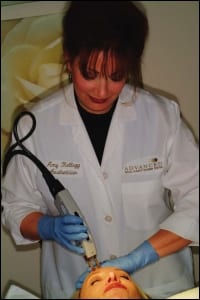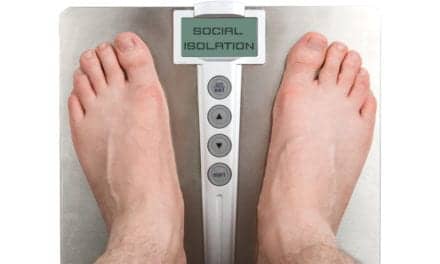
The role of a laser technician in a plastic surgery practice is a multifaceted one. When medical lasers were first commercialized, the technology was embraced and operated solely by physicians. However, a surgeon’s time is far too valuable to be spent operating a laser rather than performing surgery.
Many plastic surgery practices employ laser technicians to stay current and cost-conscious in this market and economy.
A laser technician is an integral component of the aesthetic treatment team, and is often given latitude to help decide the best course of action for patients presenting with a variety of conditions, including rosacea, photoaging, acne and acne scarring, vascular lesions, poikiloderma, and actinic and seborrehic keratosis. Evaluation of any medical conditions or unusual lesions by the overseeing physician ensures that two health professionals are caring for patients during their laser procedures.
The laser technician helps convey to patients the purposes and limitations of all the available laser treatments, as well as answer questions from patients, saving the physician valuable time.
Often, prospective patients are misinformed by the media as to how well certain procedures meet their desires. Dispelling myths is part of every aesthetic surgery practice. Setting realistic, achievable goals ensures happy patients and a great referral base.
A laser technician also works closely with the aesthetic staff when layering aesthetic treatments. Layering means that different aesthetic and laser procedures are combined during the same treatment session. In this way, the aesthetic team works together to amplify the effectiveness of each treatment.
EDUCATION AND CERTIFICATION
Although there are no national standards for laser education and certification, the level of knowledge and experience necessary for a laser technician to function in this fast-paced field is significant. A broad spectrum of expertise, ranging from laser physics, skin and hair biology, and good patient skills, are elements that yield an excellent laser technician.

The credentialing of laser practitioners is governed by each state’s medical board. Nonmedical practitioners who operate laser devices must take state-approved training courses and gain certification to practice under the supervision of a qualified physician.
The degree of physician supervision required to operate lasers varies from state to state. Some states require a medical director to personally oversee all patients receiving laser treatments, whereas others require only that a medical director be available.
Regardless of the laser technician’s background—medical, aesthetic, or even nonmedical—conscientiousness, experience, and good training are the best credentials in every state. Anyone who operates a laser should have a comprehensive understanding of laser physics and safety, indications and contraindications for laser procedures, and hands-on experience.
The technician should also understand the inherent risks associated with lasers and be aware of the proper procedures and documentation required when the unexpected happens. Providing safe laser treatments is extremely important—as is the supervising physician’s malpractice insurance, which covers any adverse events.
Strong operational skills are vital to the success of a laser technician, but knowledge of marketing is also crucial for building and retaining a patient base. Marketing budgets and strategies need to be established to advertise laser services. Comprehensive marketing campaigns may involve print, mail, radio, Internet, and even television. However, the most effective source of new business is generally via personal referrals from clients and other practices.
Current trends in the laser arena offer patients excellent results with moderate to minimal recovery times. Many patients are willing to undergo a slightly longer recuperation time if the results of the treatment are satisfactory.
New technologies are also constantly emerging in the ever-changing aesthetic laser field, but claims made by laser companies promising true skin tightening and the removal of depigmented hair often result in unrealistic expectations and disappointed patients.
It is a constant challenge to wade through the rhetoric and false promises of the latest trends. A prudent practice for any laser technician is to be conservative in the treatments offered by providing only proven modalities.
The multifaceted role of a laser technician offers many rewards and challenges. After appropriate training, the technician should be able to operate independently, yet also be a vital part of the aesthetic team.
Amy Kellogg is a licensed aesthetician and laser technician in clinical practice at the Advanced Facial Plastic Surgery Center in Dallas. She can be reached at [email protected].






